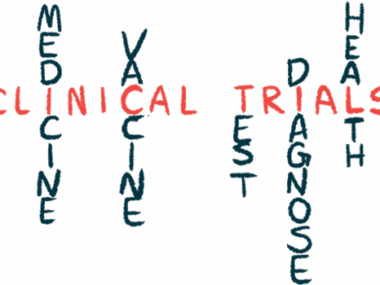First trial data on setmelanotide for PWS obesity expected this year
Therapy approved in US as Imcivree for other genetic disorders
Written by |

Early findings from a Phase 2 clinical trial testing Rhythm Pharmaceuticals’ setmelanotide in children and adults with obesity due to Prader-Willi syndrome (PWS) are expected this year.
That’s according to an update from Rhythm, which announced in a company press release that it plans to “disclose preliminary results from the … trial in Prader-Willi syndrome in the second half of 2025.”
The six-month, single-center study (NCT06772597) is still recruiting up to 20 patients, ages 6 to 65, at the University of Florida in Gainesville. The trial’s first participant was dosed in April.
The study is evaluating whether setmelanotide, already approved in the U.S. as Imcivree to treat obesity related to certain genetic disorders, is also safe and effective in PWS-related obesity.
The therapy works by activating the melanocortin-4 receptor (MC4R) pathway, which is involved in controlling appetite and satiety (feeling of fullness), and is thought to be impaired in many obesity-causing genetic conditions, including PWS.
“We enter the second half of 2025 well-positioned to drive sustained growth and value for patients and shareholders by working to expand the reach of setmelanotide into additional rare MC4R pathway diseases and develop new therapeutic options designed to improve the patient experience,” said David Meeker, MD, Rhythm’s chairman, CEO, and president, while providing the company’s financial results and business updates.
PWS is caused by the loss of genes in a section of DNA in the paternally inherited chromosome 15. Several of these genes encode proteins important for growth, appetite, and the metabolic processes that help the body turn food into energy.
Excessive appetite, or hyperphagia, is a hallmark PWS symptom that starts in early childhood, and commonly leads to overeating and obesity. Hyperphagia in people with PWS may be due to a lack of satiety, which is thought to be related to an impaired MC4R pathway.
Setmelanotide aims to help patients lose weight in sustained way
With setmelanotide, an activator of the MC4R pathway, Rhythm hopes to reduce hyperphagia, which may help people with PWS lose weight in a sustained way. The therapy is administered through subcutaneous, or under-the-skin, injections.
In a previous Rhythm-sponsored Phase 2 trial (NCT02311673), high doses of setmelanotide, taken once daily for two months, led to a reduction in hyperphagia and body weight in obese PWS patients. Participants on lower doses or shorter treatment durations didn’t see these therapeutic effects, however, according to study data.
The ongoing Phase 2 study is testing the daily therapy over a longer time period — up to 26 weeks, or about six months — during which participants will gradually increase their setmelanotide dose to 5 mg/day, as tolerated.
As the primary outcome, investigators are tracking the frequency and severity of adverse events. Secondary goals include changes in body mass index (BMI), a ratio of height and weight, and in scores on the Prader-Willi Syndrome Food Problem Diary.






